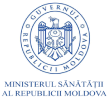Early Intervention, Outpatient Consultation and Diagnosis Department
The Early Intervention, Consultation and Outpatient Diagnostic Department is a subdivision of the Rehabilitation Center for Children and aims to identify, consult, evaluate including functional and imaging, create the individual rehabilitation plan for children with neuromotor disabilities and from the risk group, with the following reference for the Department of Physical Rehabilitation and Occupational Therapy and the Department of Psycho-verbal Rehabilitation and Social Assistance.
The department’s specialists will propose individual projects and services for the purpose of medical, psycho-social rehabilitation, overcoming developmental delay, improving the general condition, assisting the family in the process of adapting to the difficulties related to the child’s health and care problems.
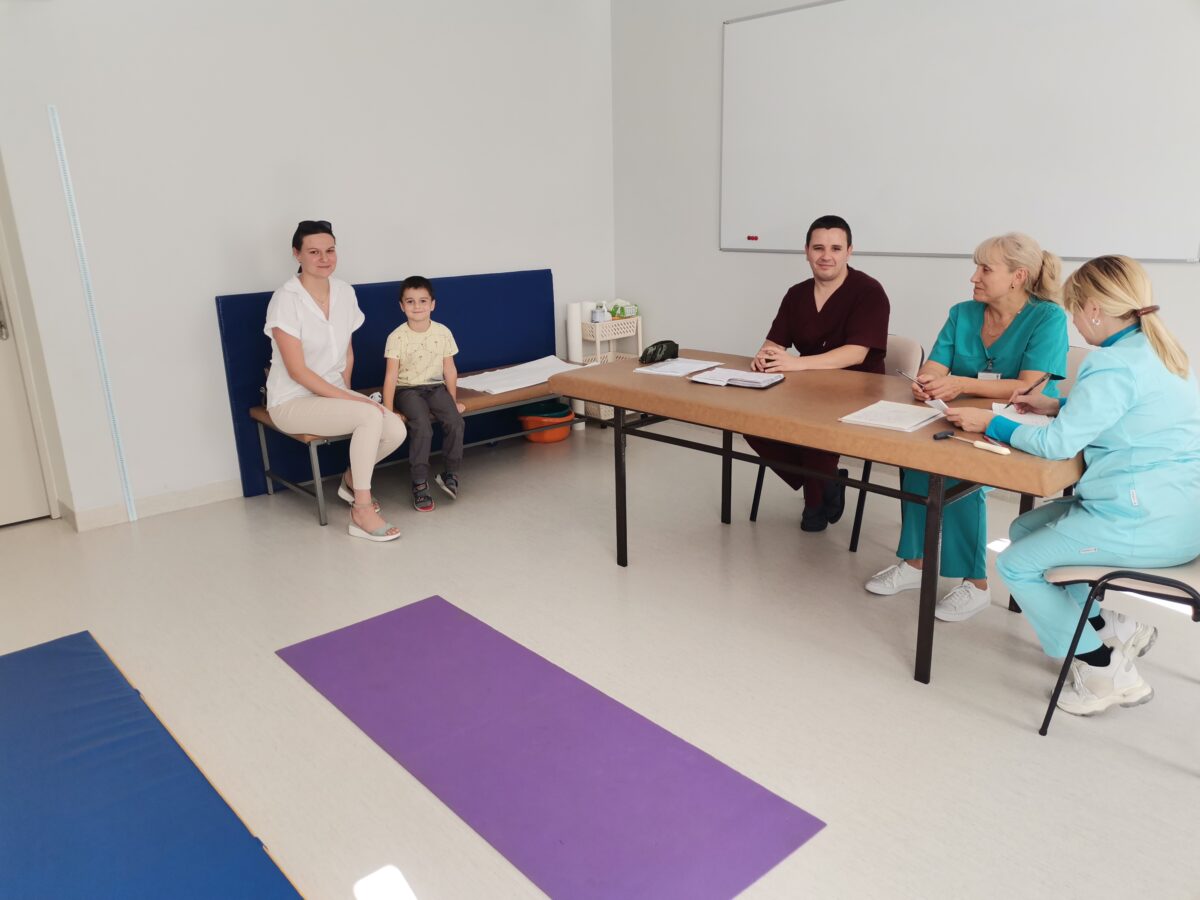
Specialists: Pediatrician, Pediatric Neurologist, Rehabilitation Physician, Orthopedic Traumatologist, Psychiatrist, Psychotherapist, Epidemiologist, Functional diagnostic/imaging physician, Pharmacist, Medical assistant.
The basic tool in the provision of the Early Intervention service is the multidisciplinary consultation carried out at admission with the participation of the Pediatrician, Neurologist-pediatrician, Rehabilitologist, Nurse and the child and his family. If necessary, the consultation of other doctors and specialists in special psycho-pedagogy, speech therapists, psychologists, physiotherapists, occupational therapists within the institution is required to correct the treatment and rehabilitation tactics.
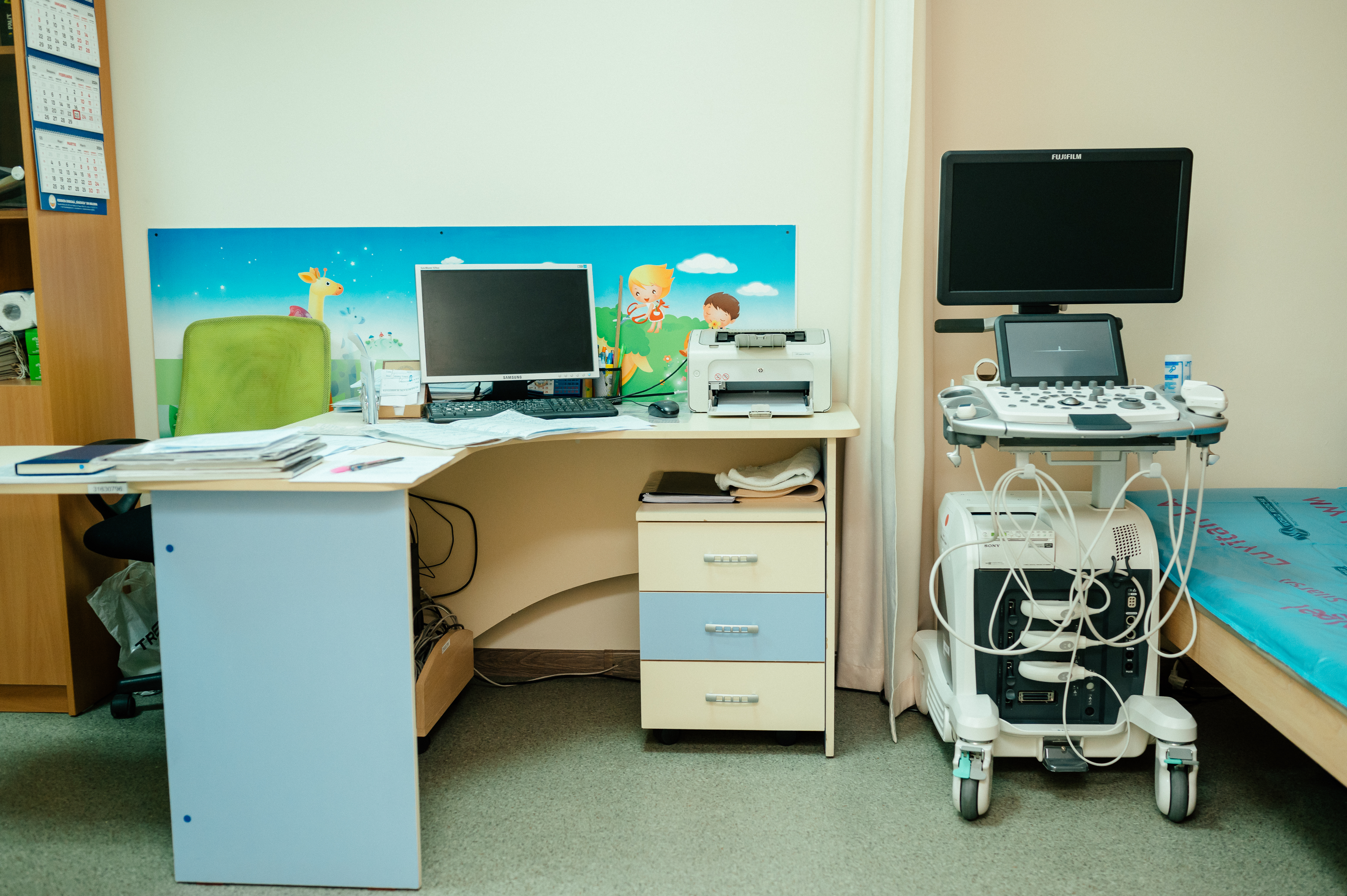
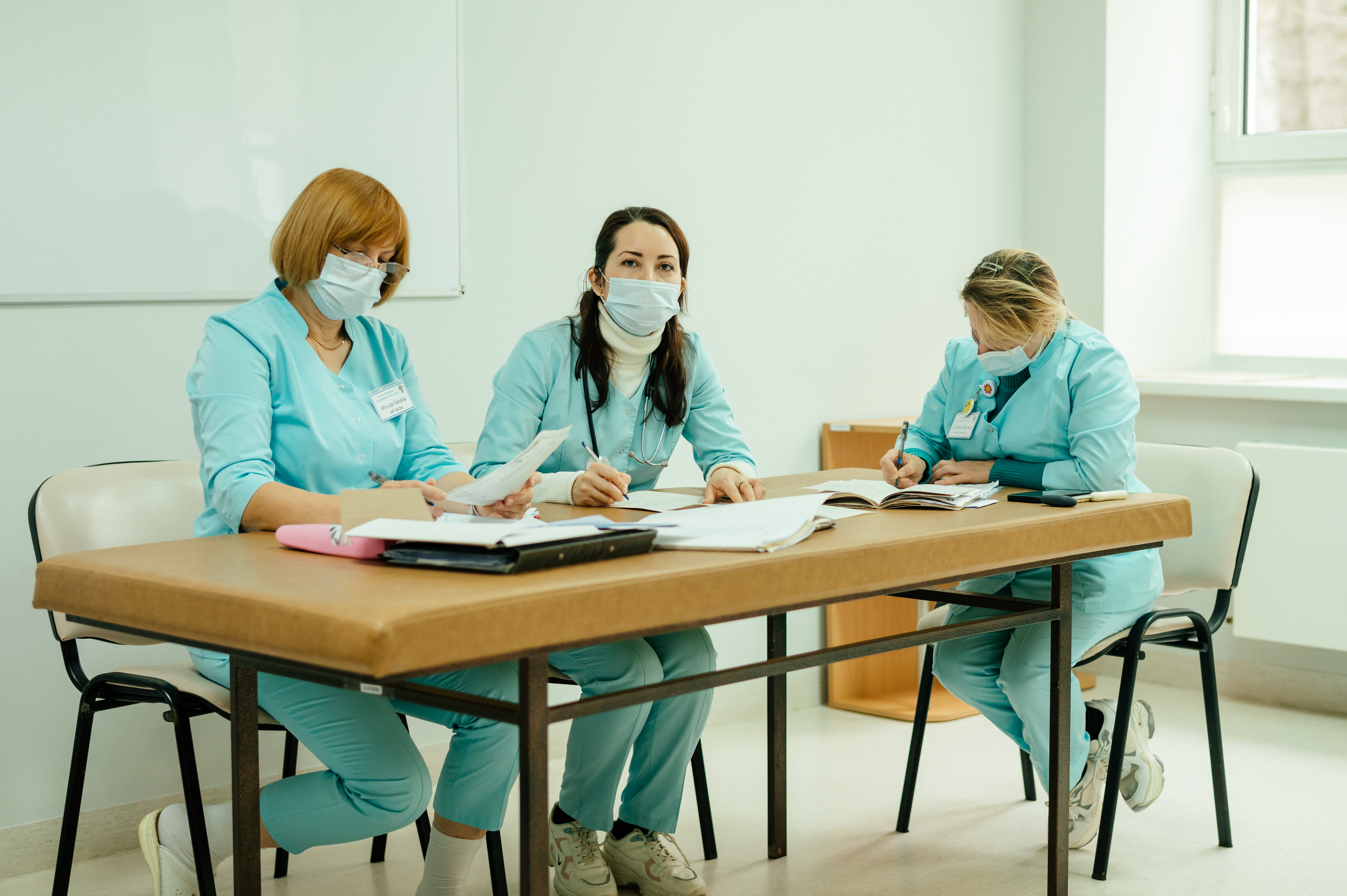
Specialişti
The Early Intervention, Consultation and Outpatient Diagnostic Department aims to achieve the following objectives:
- Carrying out a screening program with the highlighting of children from the risk group, within the early intervention service and placing them in individualized rehabilitation programs.
- Early detection and diagnosis of neurological diseases.
- Correcting the neurological treatment tactics when necessary.
- Performing diagnostic instrumental and imaging methods: EEG, NSG, USG, ECG
- Comparative analysis of the results of investigations of patients with disabilities.
- The evaluation of the dynamics of the rehabilitation process is carried out with various periodicities.
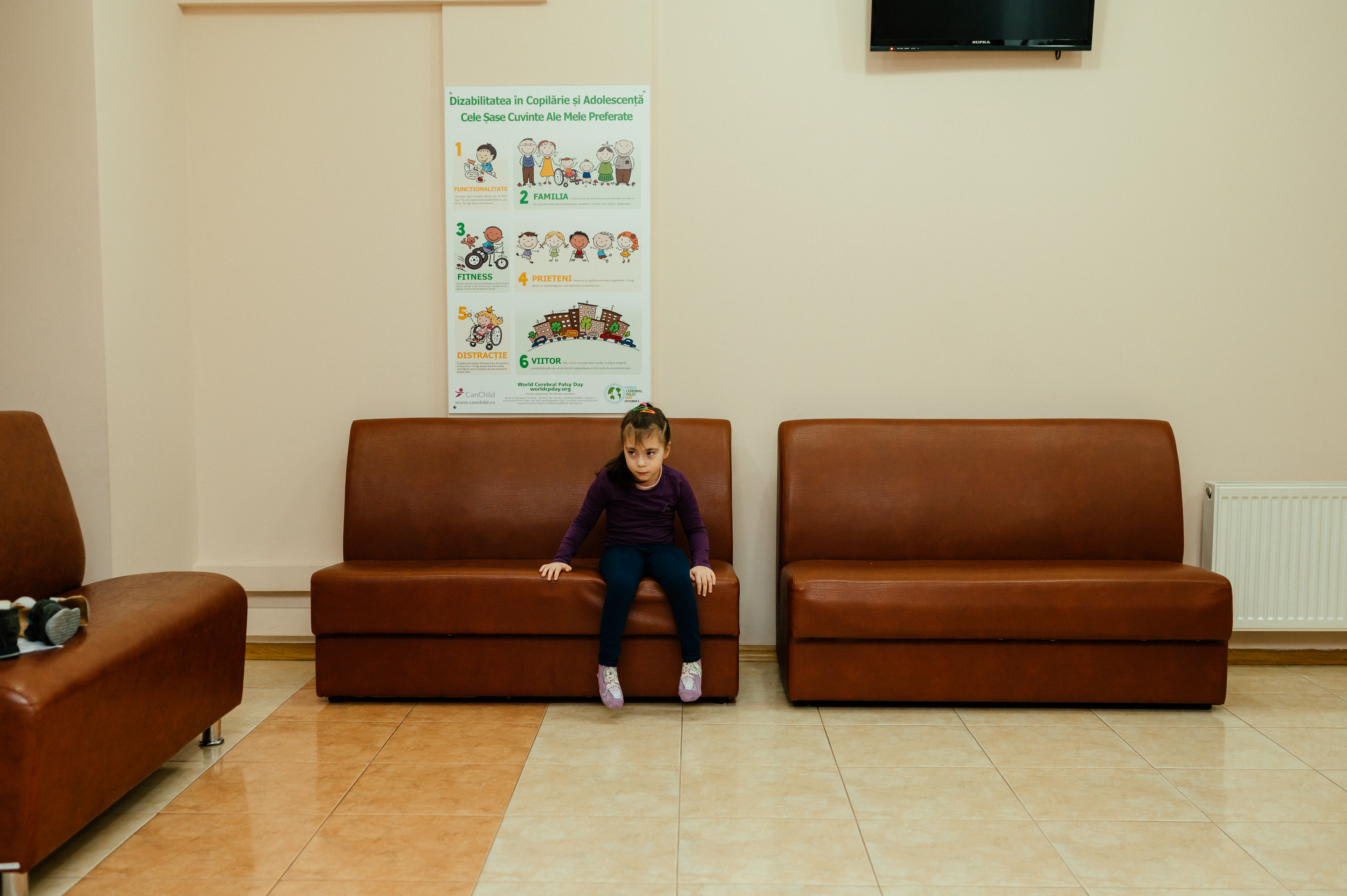
The Early Intervention, Consultation and Outpatient Diagnostic Department aims to achieve the following objectives:
- Carrying out a screening program with the highlighting of children from the risk group, within the early intervention service and placing them in individualized rehabilitation programs.
- Early detection and diagnosis of neurological diseases.
- Correcting the neurological treatment tactics when necessary.
- Performing diagnostic instrumental and imaging methods: EEG, NSG, USG, ECG
- Comparative analysis of the results of investigations of patients with disabilities.
- The evaluation of the dynamics of the rehabilitation process is carried out with various periodicities.
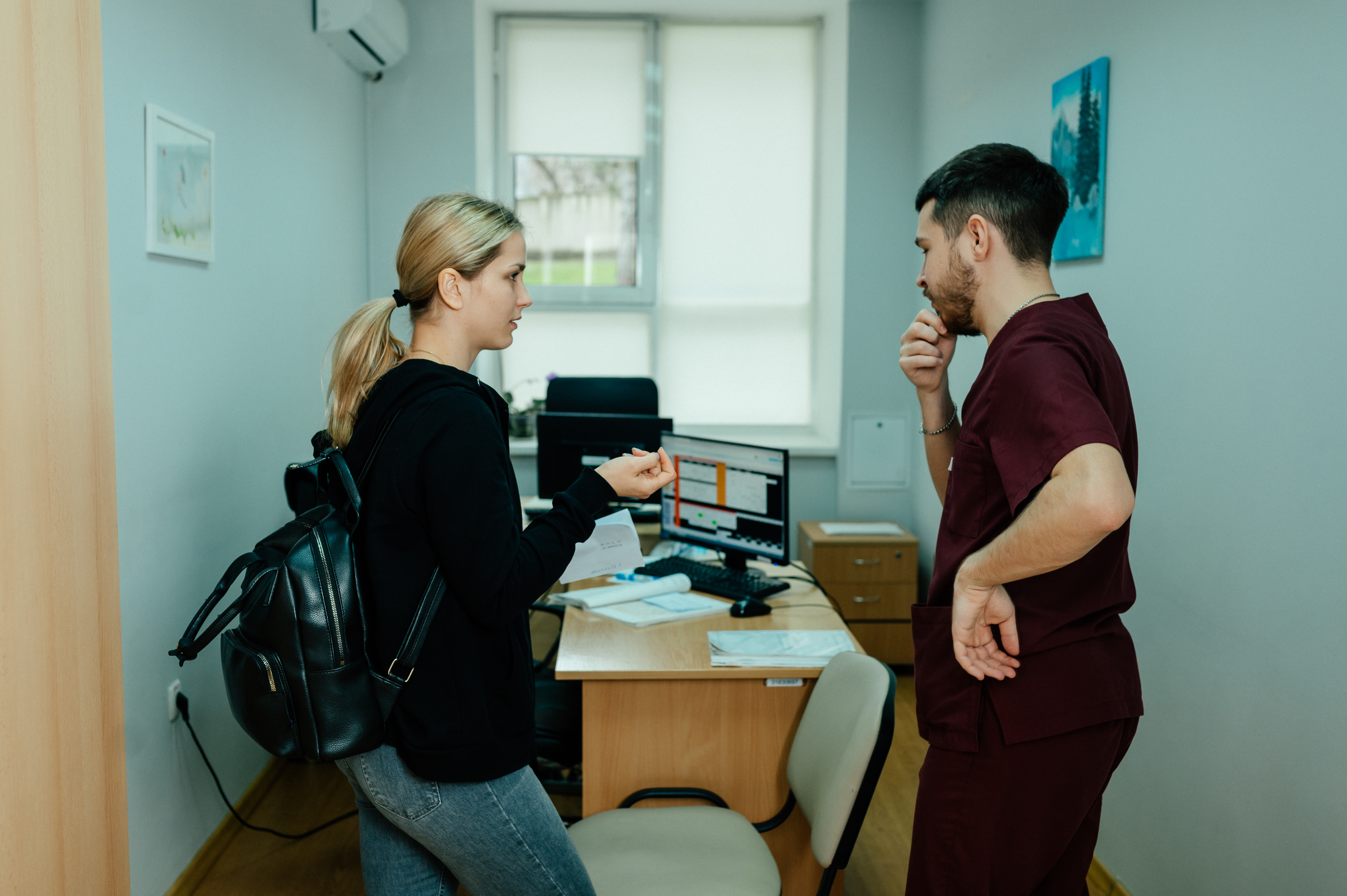
Children will be admitted to the ward on a scheduled basis (with prior registration).
Children with neuro-motor disorders are sent to the Republican Rehabilitation Center for Children on the basis of the referral form ( F 027/e ) of the medical commission and the informed consent signed by one of the parents. The detailed epicrisis from the child’s development sheet (F-112/e), the certificate on the epidemiological status, the copy of the birth certificate, the copy of the medical conclusion for the child with a degree of disability from childhood to the age of 18 years old (form No.- 080/e) – if existing.
At the time of hospitalization in the Early Intervention, Consultation and Ambulatory Diagnostic Department of the Center, patients are examined by the specialists of the multidisciplinary team to assess the current level of the child in all areas of development, social and family status, with the elaboration of the individual rehabilitation program according to the indications and contraindications present.
Children will be admitted to the ward with one of their parents or guardian/legal representative.
Duration of the rehabilitation Programes
Children in the early intervention program
- I can benefit from 3-4 treatments per year (depending on severity).
- Duration of a treatment course – 10 days with daily sessions (excluding Saturdays and Sundays).
- I can benefit from the full range of necessary procedures in the number of up to 3-4 types of sessions per day and with an emphasis on the motor or psycho-verbal field (consultation of specialists will not be taken into account) and physiotherapeutic procedures if necessary.
- Upon reaching the age, the child and the family that require rehabilitative services the transition to another program within the Center will be ensured or will be referred to other institutions that provide the necessary services.
Children up to 18 years old in standard program (with daily sessions)
- Will benefit from 3-4 treatments per year (depending on severity).
- Duration of a treatment course – 10 days with daily sessions (excluding Saturdays and Sundays).
- Will benefit from the full range of necessary procedures in the number of up to 4 types of sessions per day and with an emphasis on the motor or psycho-verbal field (consultation of specialists will not be taken into account) and physiotherapeutic procedures if necessary.
Children up to 18 years old in extended program (program over one day that can continue after a standard program or can be initiated from the beginning)
- I can benefit from up to 10 days with meetings over a day (absences are not recovered).
- I can benefit from 2 types of sessions in the motor domain and, if necessary, 1 type of session in the psycho-verbal domain (specialists’ consultation will not be taken into account).
Criteria for inclusion in the extended program
- Patient after injection with botulinum toxin type A (Dysport) with potential for functional progression (cases of injection with temporary purpose without developmental progression are excluded).
- Patient after surgery and/or orthopedic correction (the period between 2 and 6 months after the intervention).
- Suspicion of the diagnosis of Cerebral Palsy in the child from early intervention, but the diagnosis is not confirmed.
- Severe motor impairment with good potential for recovery.
- Patient with neuromuscular pathology or other neurological pathology in association with moderate-severe somatic disorders with a degree of reduced exercise tolerance (which cannot be included in the standard program).
In case of unjustified absence from the sessions during the treatment course, they are canceled without the possibility of recovery.
In case of unjustified interruption for more than 3 days (with sessions), the patient is discharged.
Children in the orthopedic group
- I can benefit from 2-3 treatments per year (depending on severity).
- Duration of a rehabilitation course – 2 calendar weeks, with daily sessions – up to 10 days (excluding Saturdays and Sundays).
- I can benefit from group physical therapy, group hydrokinetotherapy (in the case of moderately and rapidly progressive pathologies, another necessary procedure can be added).
Criteria for inclusion in the orthopedic group:
- Patient with confirmed orthopedic diagnosis.
- Orthopedic doctor consultation in the last 6 months.
- Stable mental state with cooperative and appropriate behavior.
- Patient age 6-18 years (group 6-12 years and/or group 13-18 years).
- Lack of diseases in the early postacute phase, hyperthermia, acute respiratory infections, etc.
The number of patients in the orthopedic group up to 8 children in the group.
Children in the orthopedic group do not benefit from paraclinical investigations.
Requirements for group hydrokinetotherapy:
- Stable mental state with cooperative and appropriate behavior.
- Maintaining proper personal hygiene
- Lack of fear of water (hydrophobia)
- Lack of diseases in the early postacute phase, hyperthermia, acute respiratory infections, etc.
- Lack of chronic diseases in acute cases – or in the decompensation phase.
- Lack of sphincteric disorders
- Lack of infected wounds, unhealed skin ulcers, atopic dermatitis, mycosis, etc.
- Lack of parasitic diseases – helminthiasis, pediculosis, etc.
- The presence of pool equipment
The department’s activity is carried out in spaces with special equipment for carrying out the diagnostic and advisory process: the office of the multidisciplinary consultation, medical offices (neurologist, pediatrician, rehabilitologist, psychotherapist, orthopedist), functional diagnosis (EEG, Echo-EG, USG of internal organs and neurosonography, ECG). The department has a mother and child room.
After completion of the recuperative treatment that took place within the Republican Rehabilitation Center for Children, the patient is issued a referral (Form 027/e) specifying the recuperative treatment followed and the necessary recommendations.

